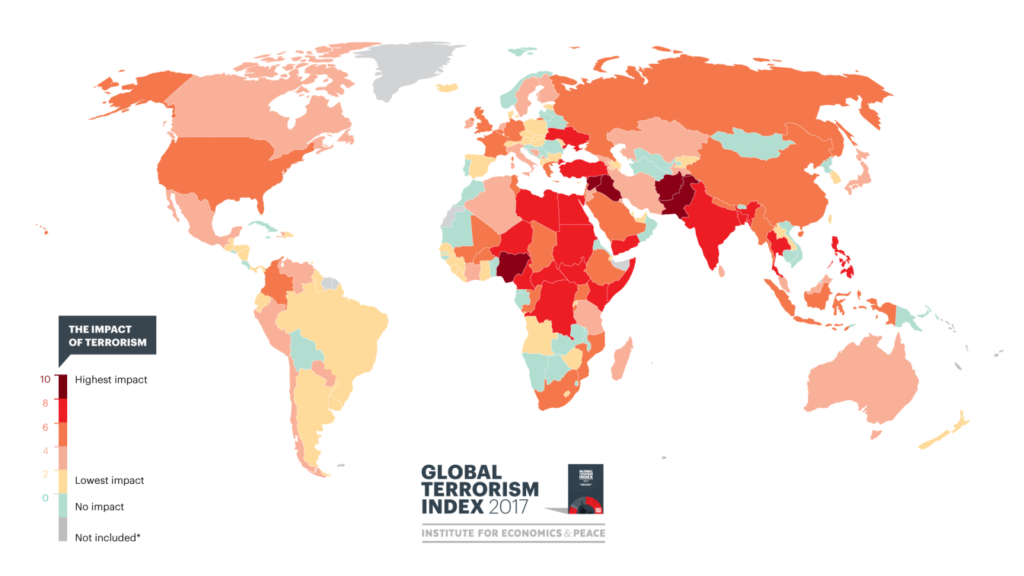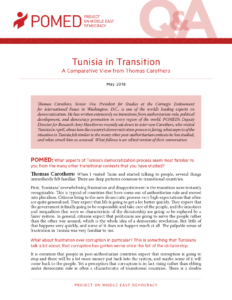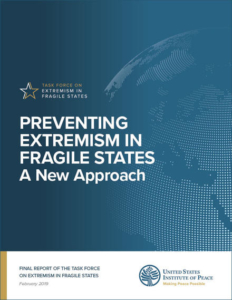
The Islamic State was dealt serious blows with the loss of its territorial caliphate in March 2019 and death of its leader, Abu Bakr al Baghdadi, in October 2019, analyst Aron Zelin observes in After Losses, Islamic State Plots Comeback. The most hardcore IS supporters are unlikely to be deterred by these setbacks. IS has continued to operate as an insurgency in Iraq and Syria. Thousands of fighters are biding their time to try and breakout prisoners and potentially retake territory, according to the Wilson Center in a series on How Islamists {both violent and non-violent} Fared in 2019:
- Across the Middle East, Islamist movements faced major setbacks or struggled to retain their positions in 2019. Among peaceful Islamist parties, Tunisia’s Ennahda Party stepped deeper into politics. Ennahda won more seats–52 out of 217–than any other party, but it won 17 fewer seats than it had in the 2014 election. Egypt’s Muslim Brotherhood remained outlawed and underground. Among Shiites, Lebanon’s Hezbollah faced a serious political challenge at home even as its militia wing deepened its involvement in regional conflicts.
-

POMED
Ennahda’s Shifting Role in Tunisia’s Transition: Adam Gallagher believes Ennahda has played a major role in the country’s transition and will now piece together a ruling coalition that must address a deeply disaffected citizenry, a withering social contract and a lackluster economy. But building that coalition will not be easy.
- U.S. Report: ISIS Regrouping in Syria and Iraq: The Islamic State strengthened its position in northern Syria after the withdrawal of U.S. troops and subsequent Turkish incursion in October 2019, according to a new quarterly report on Operation Inherent Resolve. The chaotic situation allowed ISIS to “reconstitute capabilities and resources within Syria and strengthen its ability to plan attacks abroad.”
- Report: Terrorism on Decline in Middle East and North Africa: The number of terrorist attacks in the Middle East and North Africa (MENA) declined significantly in 2018, according to the Global Terrorism Index, (above), an annual study by the Institute for Economics and Peace. The security situation improved in 17 countries and only worsened in Iran and Morocco. The better conditions were largely driven by the deterioration of ISIS, which lost much of its territory in Iraq and Syria.
- After the Caliphate: U.S. Strategy on ISIS: On November 14, representatives from 31 members of the Global Coalition to Defeat ISIS met in Washington to discuss a new phase in the fight. ISIS was dealt serious blows with the loss of its territorial caliphate and death of its leader in 2019. But ministers from coalition partners warned that the group continued to pose a threat.
 As more research reveals the linkages between poor governance, instability, and violence, the international policy community must develop a shared understanding of how support for responsive and responsible governance in fragile states can prevent violent extremism, the US Institute for Peace observes.
As more research reveals the linkages between poor governance, instability, and violence, the international policy community must develop a shared understanding of how support for responsive and responsible governance in fragile states can prevent violent extremism, the US Institute for Peace observes.
USIP, the National Democratic Institute, and the George W. Bush Institute host a discussion on political transitions out of fragility which will bring together thought leaders and practitioners to explore the unique factors that democracy and governance strategies face in fragile states, as well as how various disciplines can collaborate on donor strategies that build state accountability and effectiveness alongside citizen engagement and inclusion. Take part in the conversation on Twitter with #PoliticsofFragility. RSVP







